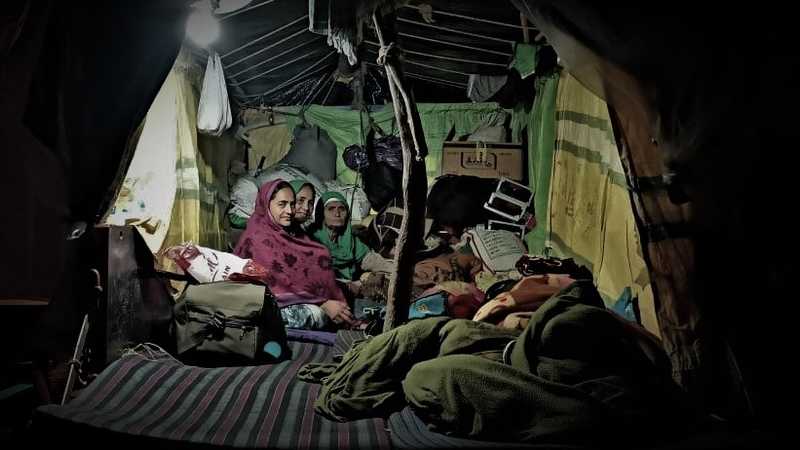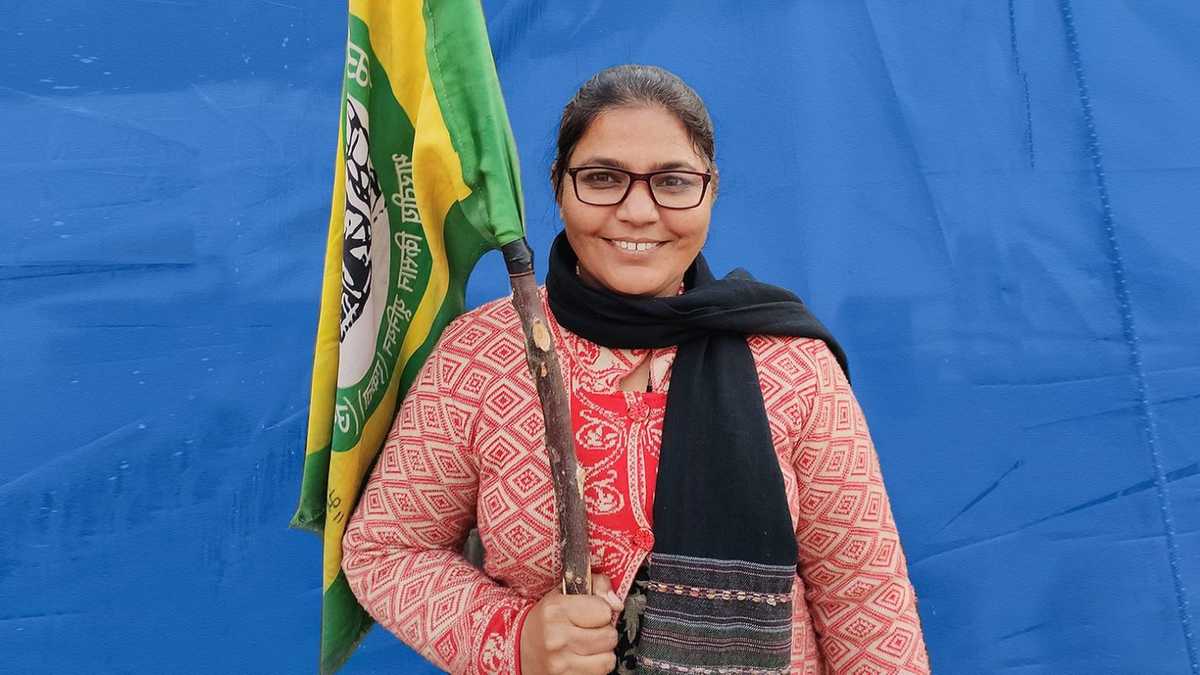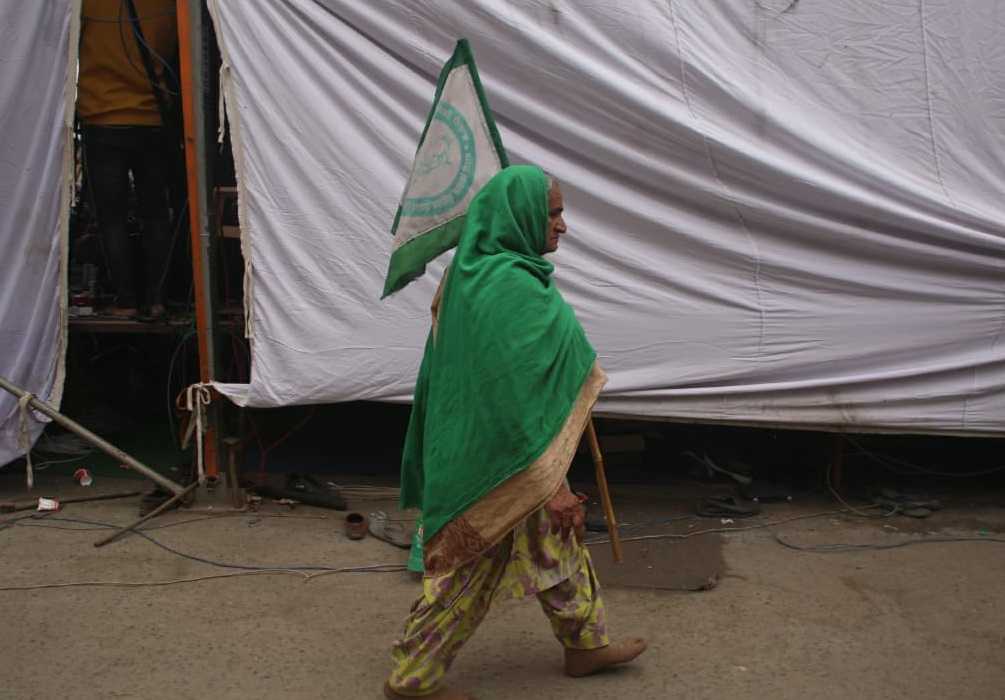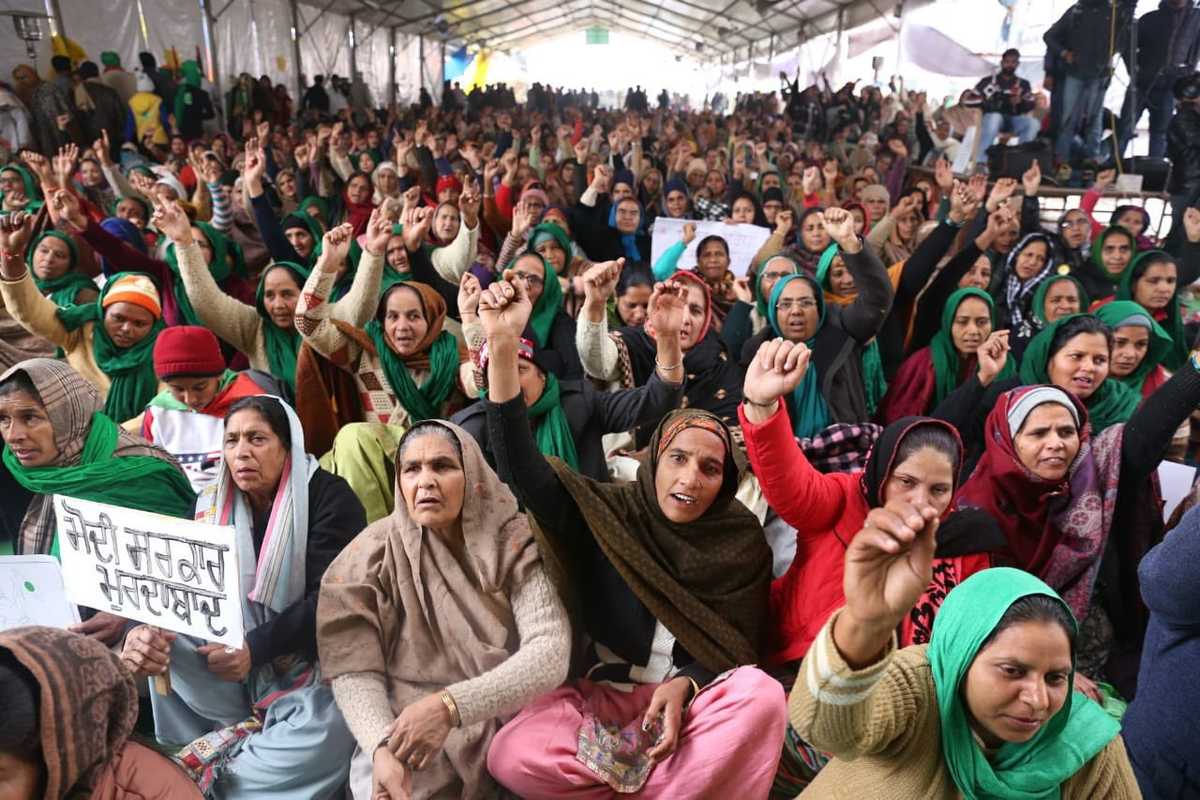
The continuing farmers’ protests on the borders of India’s national capital Delhi, demanding the repeal of the three Farm Bills have been hailed as the most valiant resistance. However, in particular, it is the large participation of women that is unprecedented.
The ordinances being passed by the BJP-led majority government without any parliamentary opposition have made ordinary women leave the confines of the four walls to hit the streets. More importantly, women’s messages are becoming sharper each time. This is evident in their reactions to the Supreme Court’s intervention on January 11 (why are women “kept” in these protests and that they should be “persuaded” to return) in the form of numerous rebuttals both on the stage of the protests and in hundreds of interviews to national and international media.
It’s not easy to say who these women are, what drives them to the protest, and exactly when their spark of resistance was lit to reach Singhu or Tikri. Even so, they are in the protest with all their resilience and keeping the protests vibrant.
Agrarian unrest has been brewing in Punjab since almost three decades, but women have been joining in slowly. The farmers’ union BKU-Ekta (Ugrahan) has been organizing both women and youth here. Traditionally, there have been very few women organizers, but domestic discord and hardships within the familial world compounded in rural Punjab as social relations were torn asunder by agrarian distress.
Some years back, in the Malwa region of Punjab, I interacted with women who survived suicides of their husbands, sons and brothers. I had spoken to their General Secretary Mr. Sukhdev Singh Kokri as well then, who hails from Moga. He told me that in the process of organizing the farmers, it becomes imperative for the union to address issues of declining sex ratio, drug addiction, and violence against women. And so it did.
What has Changed?

Harinder Kaur Bindu, President of Women’s Wing of BKU-Ekta (Ugrahan)
Through cultural programmes, the union made efforts to make sense and raise awareness of myriad social processes affecting the reality of peasant life. These years of hard work seem to have paid off as the number of women organizers has exponentially grown.
Harinder Bindu, president of the women’s wing of the BKU-Ekta (Ugrahan) said that they have at least 150 women organizers planning meetings at village, block and district levels. “There is a big change. Women’s confinement to their households and their responsibility for housework does not interfere with their presence in these protests", she said when asked about visible changes in rural households.
"Husbands and other family members are sharing household chores like cooking, etc. Relationships within the family are improving. The unease male family members had of women stepping out or mixing with strangers has now lessened", she continued. “Our struggle is for women’s equality within the family setup as well as their land rights and employment. This struggle is also about fighting caste superiority", she added.
Women's Experiences Across the Protest

A long and tedious debate among academics and among farmer organizations has been if women should be seen as farmers or farmers’ wives. Seemingly, the debate has now ended, and the verdict has come in the form of a long overdue identity, of “women farmers”. Today, these women, in thousands, have driven into the nation’s capital on the same tractors they used to drive in their villages.
Thus, there are major paradigm shifts happening at all protest sites on the borders of Delhi. On December 16 2020, hundreds of women there held up photos of their male kins who had died by suicide, even though they were not all widows or victims.
This was followed by Mahila Kisan Divas (Women Farmers’ Day) which was organized on January 18 where women marched with self-respect, demanding the repeal of the three Farm Bills. The protests thus swelled as Republic Day arrived.
Finally, on March 8, thousands of women from Punjab, Haryana and UP marched and danced, celebrating International Women’s Day. The bonding of Punjabi women with women from Haryana and Uttar Pradesh was electric. The collective strength of women was demonstrably clear and vociferous.
It’s not just the Malwa region; there are also women from the Majha and Doaba regions who have participated in these protests. A group of women at the Singhu border explained how they were drawn into the protests impulsively.
Ravinder Kaur recalled how she packed her bag in a clandestine manner and then announced to the family that she is leaving for Delhi. “Our lives are mired in drudgery from 4am to 11pm. But there is nothing natural about it. No one recognizes our labour. Here we are gathering strength from each other while demanding repeal of the farm laws", she said.
Amandeep Kaur shared how she took an autorickshaw going to the Golden Temple and from there she joined a group of women headed for the Amritsar railway station, on their way to Delhi. She brought nothing with her. She said, “I always wanted to come to Delhi but this came as a call from the one above. I was destined to join the protest.”
She informed her mother of her arrival in Delhi through Joginder Kaur. Joginder has been mobilizing women in Amritsar since December. She detailed how many women have become part of the protests by coming on their own or by word of mouth. Once they reach the city, they become part of the larger collective and live together in tents and trolleys.
Attending large meetings collectively has given these women a platform to put forth the effects of the three Farm Bills on them. Kashmir Kaur, for instance, who has two acres of land leased out said that the yield is sufficient to feed her, her daughter and mother-in-law. Her husband and son are dead. She said they will be left with nothing if this land is forfeited. She wanted to know what kind of future PM Modi envisages for her daughter in his slogan of Beti Bachao, Beti Padhao (Save the girl child, educate the girl child).
The Long Road Ahead

The participation of these women is as organized as it is spontaneous. And political participation of women is one major catalyst in the long struggle against the oppression of patriarchy and caste, which is otherwise arduous, endless, and daily.
Harinder Bindu said that Dalit women are yet to join protests in larger numbers as they face obstacles from both local administration and big zamindars (landowners, especially ones who lease their land to tenant farmers), even if they are relatively freer than Jat Sikh women within their family and community structures. "In 2016, Dalit women had faced police repression when they had protested against the abduction and rape of a Dalit woman in Muktsar, the Chief Minister’s own constituency", she recalled.
The sense of belonging to Punjab is not based on its geographical entity or location. The affinity to the land comes from a deeper belief system that fosters and nurtures community support and collective ethos, irrespective of the graded inequalities within the socio-economic order, be it towards Dalits, youth, women or the landless.
Elderly women volunteers in Tikri detailed how they take turns to do seva (service) by serving prasad (food offering) to protestors through community kitchens. This act strengthens their sense of resistance. “We are the Laxmibais (Indian queen who showed immense resistance fighting against the British in the 19th century) of the modern era. We can sit here for another 10 years, if required", said Karamjeet Kaur at Singhu. "Langars (community kitchen of a gurdwara, which serves meals to all free of charge, regardless of religion, caste, gender, economic status, or ethnicity) have been going on for more than 500 years. These langars will never stop. Guru Nanak wills us to be all inclusive, that is our strength", she added.
Women have always had to struggle against oppression and exploitation within and without – be it the family, organization or the misogynist society at large. As part of this protest, young women are speaking up against sexual harassment in Swaraj Abhiyan, Trolley Times and SFS even as they are being trolled by the right-wing on social media. Their courage and conviction emerges from the spirit of resistance that has gripped the entire Punjab.
Farmer organizations held siege at the Dry Ports of the Adani group at Qila Raipur in Ludhiana district from March 27 to 31. The BKU-Ekta Ugrahan leader Sukhdev Singh Kokri explained how the momentum had been building, “We have been working non-stop since the time the ordinances were announced in June. The protests within Punjab have grown each day since. The biggest strength of these protests has been that it’s invigorated the collective consciousness. We have been at it since long, however slow and painstaking the process it has been. Today, within Punjab, there are protests in every block and district, in universities and on toll plazas. As you can see, the number of women and young girls has been continuously rising.”
Speaking to the Workers’ Unity channel, Prof. Surinder Kaur from Jamoori Kisan Morcha, which is part of the Samyukta Kisan Morcha coalition, said women form the backbone of these protests. “As agrarian distress has been bearing down on the rural household economy, parallelly, women’s struggles have been rising within their homes. These three Farm Bills have brought in the realization that the hearths they struggled daily to keep burning may go cold. They have been quick to understand this and have acted in unison”, she said.
“These three Farm laws will put an end to Dalits, agricultural and landless poor who sell and consume their labor. It is still a big challenge to increase participation of Dalits in these protests. It is at the protest site where ideas and actions need to germinate for the future vision of the entire society. To take resistance forward, we are tackling complex questions like inclusion of all exploited sections. But our strength lies in our legacy and in our history where resistance is the only way”, she remarked.
The ongoing farmers’ protests amply demonstrate that the word “farmer” means an entire community: women, men, elderly and the youth. And it is a collective struggle of food producers, land owners or landless. And hence, there is no individual producer that state and capital can buy in trickery or in appeasement. And as history has shown, once women put their stakes in the struggle, resistance becomes formidable. These women may have stepped out temporarily from their homes and hearths, but the character of this protest has surely changed forever.
There’s a surge of consciousness and awareness which is spreading like wildfire from villages to districts and from states to the borders of Delhi.
Indeed, Hindustan Bol Raha hai (India is Speaking Up)!
Ranjana Padhi, based in Bhubaneswar, has authored Khudkhusi Ke Saaye Mein Zindagi Ki Baatein: Punjab ki Aurton par Krishi Sankat ka Prabhav (MP Mahila Manch, 2014). She has also co-authored Resisting Dispossession: The Odisha Story (Aakar Books, Palgrave Macmillan, 2020), whose Hindi version Gaon Chhodob Naahin: Odisha ke Das Jan Sangharsh ki Gaathaayen is expected soon.






